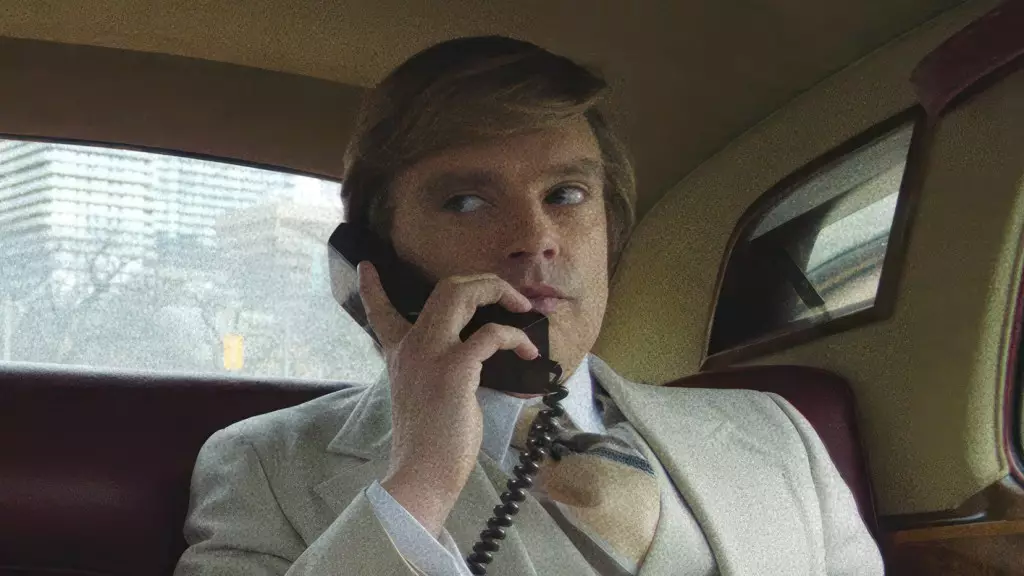Sebastian Stan is venturing into uncharted territory with his portrayal of Donald Trump in the highly anticipated film “The Apprentice.” This role not only marks a significant leap in his acting career but also places him at the crux of a politically charged narrative. Scheduled to debut on October 11 in U.S. theaters, just before the crucial election period, the film promises to draw considerable attention from audiences and critics alike. Stan’s unprecedented choice is both a gamble and an opportunity to showcase his range as an actor amidst a polarized political landscape.
In a recent interview on the Today show, Stan humorously referred to “The Apprentice” as a “Marvel film,” a quip that underscores the absurdity and larger-than-life aspects of Trump’s persona. However, as he delves deeper into his character preparation, Stan reveals the rigorous process he undertook. He emphasized the importance of sleep—something that eluded him during the intense research phase, involving a comprehensive review of numerous documentaries and archival footage. Just as musicians refine their craft through practice, Stan approached playing Trump as a dynamic performance, where familiarity transforms his portrayal into a seamless representation.
With Stan sharing the screen with Jeremy Strong, an actor known for his intense method approach to roles, the pressure is palpable. Strong’s performance as Roy Cohn, Trump’s ruthless mentor, sets a daunting benchmark for Stan. The juxtaposition of their acting styles could either create a compelling dynamic or highlight the discrepancies in their portrayals. Stan’s commitment to authenticity may lead him to immerse himself fully in Trump’s psyche, but the risks of losing oneself in such a polarizing character are equally significant. The audience is left to wonder: how will Stan navigate this delicate balance?
Since its world premiere at the Cannes Film Festival, which garnered an impressive 11-minute standing ovation, “The Apprentice” has stirred considerable controversy. Notably, Donald Trump’s campaign issued a cease-and-desist letter in a futile attempt to halt the film’s distribution in the United States. This level of objection hints at the potential impact and sensitivity surrounding the film, making it clear that this portrayal of Trump is not merely a creative endeavor but a significant cultural commentary. The film’s journey through various film festivals indicates a resilient response to censorship and highlights the potency of the narrative.
The release of the film coinciding with Trump’s ABC News debate against Kamala Harris raises the stakes even higher. This timing is strategic; it ensures that “The Apprentice” captures the attention of undecided voters and stirs conversations about Trump’s legacy at a pivotal moment in American politics. As audiences engage with this story, the lines between art and reality blur, compelling viewers to confront their perceptions of political figures and the narratives that shape their public personas.
As Sebastian Stan prepares for the premiere of “The Apprentice,” he not only steps into a challenging role but also ignites conversations about power, perception, and the art of storytelling in cinema. His journey toward embodying Trump exemplifies the intricate dance between actor and character, inviting viewers to reflect on the broader implications of their portrayals in the context of contemporary society.

